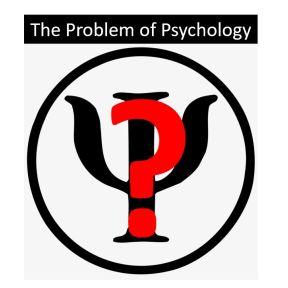NEUROSCIENCE- The Hard Problems of Consciousness and Psychology. The problem of psychology is more important than the problem of consciousness. Reviewed by Lybi Ma

KEY POINTS-
- The science of psychology cannot be coherently defined.
- Historically, this is known as the crisis in psychology. It is an important but forgotten problem.
- Solving it means we would know how to define mind, behavior, consciousness, and the self.
- A new synthesis for solving the problem has been proposed.
Twenty-five years ago, the neuroscientist Christopher Koch bet the philosopher David Chalmers a fine case of wine that in 25 years science would have made significant steps toward solving the hard problem of consciousness. The essence of the hard problem is explaining what it is, exactly, that causes the subjective conscious experience of being. We still do not have a good way to address the hard problem, and the philosopher won the bet and recently the neuroscientist sent him a case of fine wine.
There is another hard problem that I think is even larger than the hard problem of consciousness in the sense that it has bigger implications for our everyday lives. It also has a long tradition of baffling both scientists and philosophers, at least historically. Unfortunately, few people today, other than yours truly, are focused on it. Yet, it is a massively important problem, and it was recognized as such over a century ago. Our failure to solve it has crucial implications.
I am talking about the problem of psychology. Like the hard problem of consciousness, the problem of psychology can be easily stated; as we move from physics and astronomy into chemistry and geology and into biology and neuroscience, we see that these sciences have a clear, consensually agreed-upon referent in the world. That is, physics is about the science of the behavior of energy and matter across scales, chemistry is about the behavior and structure of matter from particles to atoms to molecules, geology is about the earth’s physical structure and behavior, biology is the science of living organisms, and neuroscience is the science of nervous systems.
But something very odd happens when we move from neuroscience to the science of psychology. All of a sudden, we lose the core of consensus regarding the field's basic subject matter. For some, psychology is the science of behavior, whereas for others it is the science of the mind. Historically, psychology used to be the science of human consciousness, which is different from the mind as a whole. Some think that psychology concerns itself with the behaviors and mental processes of virtually all animals, some say it focuses on some animals, and others say it is only concerned with human behavior and mental processes. There is also confusion about its core identity. Some say psychology is a natural science, some say a social science, whereas others say it belongs more to the humanities. Some think of it more as a basic science, whereas for many it is a health service profession.
This was a problem that psychologists used to be worried about. Like the hard problem of consciousness, it even had a name. It was called the “crisis of psychology,” and it appeared in the literature as early as 1899. However, by the middle of the 20th century, the field largely stopped worrying about it. A key aspect of my work on the Unified Theory of Knowledge (UTOK) is about returning our attention to this problem.
Why is the problem important? In A New Synthesis for Solving the Problem of Psychology: Addressing the Enlightenment Gap, I explain that the problem points to a central gap in our current knowledge systems and shows that we are operating from an inadequate conception of knowledge in general. At a very basic level, the hard problem of psychology means that we do not have the vocabulary to effectively talk about the concept of mind in the language of science. Take a moment and repeat that. The problem of psychology means that the concept of mind does not fit clearly into the way the natural sciences frame the world. This is a core problem that UTOK seeks to address.
We can now raise a question parallel to the bet Chalmers won against Koch: In 25 years, will we have consensually solved the problem of psychology? I claim the answer can be yes. And, if so, it means we will know what key concepts like behavior, mind, cognition, consciousness, and self refer to in the world. And if we have a system that can effectively frame these concepts, then we will have solved a problem that is perhaps even more important than the hard problem itself. It would mean that we will have developed a whole new grammar for scientifically and subjectively understanding the material world and our conscious experience of being in it, and the proper relationship between the two.
- Questions and Answers
- Opinion
- Motivational and Inspiring Story
- Technology
- Live and Let live
- Focus
- Geopolitics
- Military-Arms/Equipment
- Ασφάλεια
- Economy
- Beasts of Nations
- Machine Tools-The “Mother Industry”
- Art
- Causes
- Crafts
- Dance
- Drinks
- Film/Movie
- Fitness
- Food
- Παιχνίδια
- Gardening
- Health
- Κεντρική Σελίδα
- Literature
- Music
- Networking
- άλλο
- Party
- Religion
- Shopping
- Sports
- Theater
- Health and Wellness
- News
- Culture

